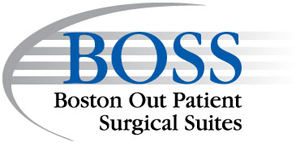How To Prepare For Surgery
Before surgery
- You will receive a link by email or text to register.
- Click on the link that says Access Patient Portal. This will take you to the login page for SIS, which is our secure site we utilize for pre-op registration for your procedure.
- You can login with your first name, last name and date of birth.
- Through your completion of this confidential, secure questionnaire, we are able to access your health status for your procedure. If you have any questions, please email our Pre-Registration Nurse directly at preop@bostonoutpatient.com or call (781) 895-4907.
For surgery
A family member or friend must accompany you to and from the Surgery Center. You may not drive after surgery. Public transportation should not be used.
- Wear comfortable clothing that is easy to get into after your surgery.
- All valuables should be left at home.
- Contact lenses may not be worn during surgery. Please bring your lens case
- Remove all make-up and nail polish
- Please remember to bring insurance card and a picture I.D.
- If you have any MRI, X-Ray or CT scans be sure to bring them with you.
After surgery
- Your condition will be closely monitored by staff personnel.
- When you can move about, you will be allowed to sit up and visit with a family member or friend when appropriate.
- You will remain in Recovery until your physician or anesthesiologist feels you are able to be discharged.
Discharge
- Specific instructions prepared by your physician will be sent home with you.
For 24 hours after surgery:
- Do not drive or operate machinery.
- Do not drink alcoholic beverages.
- Closely follow your doctor’s instructions.
- If you have any questions about your surgery, please call your surgeon for details.
- We will call you at home on the next business day to ensure you are feeling and doing well.
Preparing for a Total Joint Replacement Surgery
Total joint replacement surgeries are not too dissimilar from other outpatient surgeries. However, there a few things you should know about preparing for the surgery and about the surgery itself.
Prior to your surgery, your care team will contact you about stopping certain medications a few days before your procedure. You may also need to supply additional medical information, such as medical clearance from your primary care provider or specialist, laboratory tests and advance directives.
For the procedure, you may have general anesthesia. Some patients also have a regional anesthetic, which numbs the leg and does not require you to be completely asleep. It will also help with pain control after surgery. The choice is between you, your surgeon, and your anesthesia provider.
Learn More about Total Joint Replacement Surgery